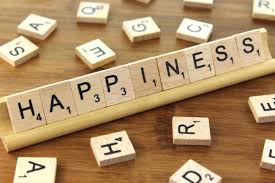"Anyone who can maintain a state of happiness, given the state of the world, is living in a delusion" claims philosopher and psychoanalyst Adam Phillips, and I seem to agree. Constantly maintaining happiness is not realistic,especially in this day and age when there are all types of scary and confusing things happening in the world and in this country.Things like the recent school shootings across the country and the comeback of outdated deadly diseases, due to parents refusing to vaccinate their kids. but I mainly agree because the pursuit of happiness can only bring negative emotion and maintaining happiness while pursuing it is impossible, but also because negative emotions are very much needed.
John Stuart mill said it the best, "ask yourself if you are happy and you cease to be so" (Mill, 531). Pursuing happiness only brings discontent and lack of enjoyment. The more time you spend trying to be happy, the less time you spend actually being happy. You set these high expectations of happiness and when the are not me, you are left with disappointment and farther from your goal. Nathaniel Hawthorne uses a great comparison to get this point across. He compares "happiness to a butterfly which, if pursued, always eludes your grasp, but which, if you sit quietly, may land upon you" (Kingwell, 531).
Humans are meant to feel a variety of emotions throughout they're life and as they react to each situation they face. To only react happily to each situation you encounter would be to react without thinking and we all know how that could turn out. Negative emotions are there for a reason. "Fear tips us off to the presence of danger, for instance" (Begley, 556). Eric Wilson, a professor at Wake Forest University definitely agrees and embraces his sadness. He believes that "only by experiencing sadness can we experience the fullness of the human condition" and claims that melancholia "results in an active questioning of the status quo, a perpetual longing to create new ways of being and seeing" (Begley, 557). Psychologist Ed Diener has also found importance in negative emotions such as sadness. In his studies, he has found that when experiencing negative mood "you become more analytical, more critical and more innovative." Diener states that "you need negative emotions, including sadness, to direct your thinking" (Diener, 557).
Yes, happiness is nice, but so are negative emotions even if they don't always seem that way. None the less, they are important and very much needed to navigate through everyday life. Be smart about your emotions and don't try to force happiness unless your goal is the exact opposite.

John Stuart mill said it the best, "ask yourself if you are happy and you cease to be so" (Mill, 531). Pursuing happiness only brings discontent and lack of enjoyment. The more time you spend trying to be happy, the less time you spend actually being happy. You set these high expectations of happiness and when the are not me, you are left with disappointment and farther from your goal. Nathaniel Hawthorne uses a great comparison to get this point across. He compares "happiness to a butterfly which, if pursued, always eludes your grasp, but which, if you sit quietly, may land upon you" (Kingwell, 531).
Humans are meant to feel a variety of emotions throughout they're life and as they react to each situation they face. To only react happily to each situation you encounter would be to react without thinking and we all know how that could turn out. Negative emotions are there for a reason. "Fear tips us off to the presence of danger, for instance" (Begley, 556). Eric Wilson, a professor at Wake Forest University definitely agrees and embraces his sadness. He believes that "only by experiencing sadness can we experience the fullness of the human condition" and claims that melancholia "results in an active questioning of the status quo, a perpetual longing to create new ways of being and seeing" (Begley, 557). Psychologist Ed Diener has also found importance in negative emotions such as sadness. In his studies, he has found that when experiencing negative mood "you become more analytical, more critical and more innovative." Diener states that "you need negative emotions, including sadness, to direct your thinking" (Diener, 557).
Yes, happiness is nice, but so are negative emotions even if they don't always seem that way. None the less, they are important and very much needed to navigate through everyday life. Be smart about your emotions and don't try to force happiness unless your goal is the exact opposite.
Comments
Post a Comment